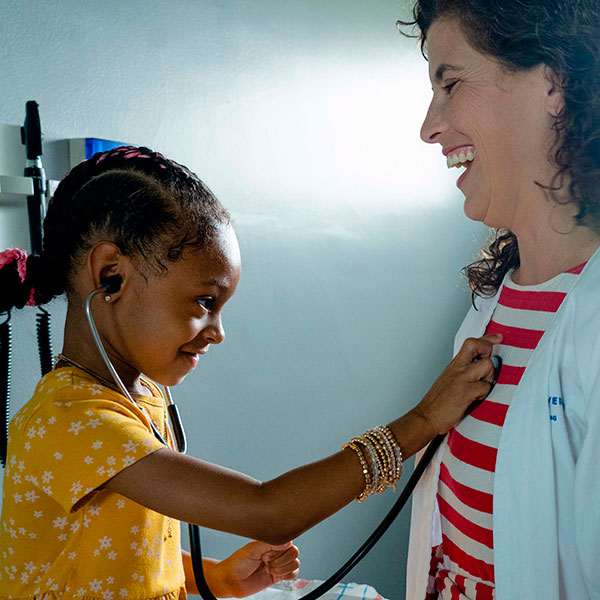IFM Overcomes Healthcare Barriers
The first 15 years of Dr. David Campbell’s career were dedicated to medical education, teaching young physicians. Even then, he recounts working to incorporate ‘outreach to the community’ into the curriculum for these young physicians. When Dr. Campbell decided to step away from medical education it was to start a not-for-profit to further this ‘outreach to the community’. In 2000, he formed the Institute for Family Medicine (now named IFM Community Medicine) to advance the goal of providing quality healthcare services to disadvantaged children and families.
Over the years IFM’s mission of strengthening underserved communities, one patient at a time, to promote community health has remained constant; however, the method of delivery has evolved. In the beginning, IFM partnered with school districts to improve school health. This grew into providing on-site provider services in residential facilities for children and teens, and partnerships were established with various youth program agencies and shelters for women and children escaping homelessness and/or domestic abuse.
IFM clinics are not the traditional stand-alone health clinics housed near partnering agencies or in a strip mall. According to Dr. Campbell, “The poor and underserved population often face barriers to quality primary care services. These can include transportation, cost, sometimes language, and distrust or intimidation of the traditional health care system.” IFM successfully addresses those barriers with its model of partnering with the hosting agency, going onsite to where the patients are, and building upon the trust that the hosting partner has already established. Now IFM operates almost 30 clinics in the St. Louis area, and in some locations, the services are open to anyone in the surrounding community. The work of IFM is most appropriately summarized by its tag line, “Where Medicine Meets Community.”
IFM’s relationship with YouthBridge began after a chance encounter with Barbara Carswell, CEO, at an open staff meeting for one of IFM’s long-time partners. Barbara was familiar with IFM and after a discussion with Dr. Campbell, she introduced him to one of the foundations working with YouthBridge. Later that year, the foundation funded new pediatric exam room furniture for a clinic at a shelter for women and children escaping domestic abuse.
More recently, IFM was the recipient of an organizational capacity building grant from YouthBridge. IFM has experienced tremendous growth in the last five years, and though demand for services continues to grow, they have stabilized financially. This grant is being used to support the transition of leadership as Dr. Campbell looks forward to retiring from his CEO role in the next couple of years. The grant has funded strategic consultation with attention to succession planning, as well as additional staff training in leadership with visionary tutoring and nurturing.
YouthBridge is particularly proud of the capacity building grants that are awarded. A capacity building grant, or capacity grant, is defined as one that invests in an organization so that it has resources to better fulfill its mission. The grant aims to strengthen a non-profit’s systems and thus increase its effectiveness. Whether a recipient organization is in its infancy or well-established, like IFM, capacity grants build and/or strengthen its foundation.
Dr. Campbell feels a special bond with YouthBridge due to their shared goal of supporting children and their families in the St. Louis region. He is thankful for YouthBridge’s support in assisting with IFM’s transition while allowing the organization to continue to grow and service the community, maintaining its legacy of being patient-focused and partner-friendly.
YouthBridge connects donors with community needs. If you are interested in learning more about how we can make charitable giving easier for you, please contact Michele Mosley.
